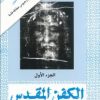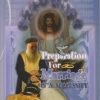THE HOLY BIBLE AND THE ALEXANDRINE CHURCH
THE HOLY BIBLE AND THE ALEXANDRINE CHURCH
Since her inception, especially starting from the second century, the Alexandrine Church has been known for her School which concentrated on the study of the Holy Bible and was interested in its allegorical interpretation. This method of interpretation was received by Origen from his teacher, St. Clement, and from his predecessors. Origen had put its principals and bases and explored its aim, to the extent that the allegorical interpretation of the Bible all over the world is owed to him. Origen exaggerated in using this method but he had left many disciples, directly or through his writings, among church leaders, and his influence remained clear even over his opponents.
I do not intend here to enumerate Origen’s fault’s because they have been exposed before, but I wish to elucidate the role of the Holy Bible in the Alexandrine Church and her School, particularly as related to church worship.
- The Annunciation (Baramhat 29, c. April 7): In it we recall the fulfillment of the Old Testament prophecies, and the attainment which the men of God had longed for across the ages, namely the coming of the Word of God incarnated in the Virgin’s womb (Matt. 13:17).
- The Nativity of Christ (Christmas) on Kayhk 29, c. January 7: It is preceded by a fast of 43 days. Its aim is to confirm the divine love, when God sent His Only – begotten Son incarnate. Thus, He restored to humanity her honor, and sanctified our daily life, offering His life as a Sacrifice on our behalf.
- The Epiphany or the Baptism of Christ on Tobah 11, c. January 19: It is connected with Christmas and the circumcision feasts. For on Christmas, the Word of God took what is ours (our humanity) and in the “circumcision” He subjected Himself to the Law as He became one of us, but in the Epiphany He offered us what is His own. By His incarnation He became a true man while He still being the Only-begotten Son of God, and by baptism we became children of God in Him while we are human being In this feast, the liturgy of blessing the water is conducted, and the priest blesses the people by the water on their foreheads and hands to commemorate baptism.
- Palm Sunday: It is the Sunday which precedes Easter. It has its characteristic joyful hymns (the Shannon – Hosanna (Matt. 21:9), and its delightful rite. The church commemorates the entrance of our Lord Jesus into our inward Jerusalem to establish His Kingdom in us and gather all in Him. Therefore a delighful is procession or the redeemed believers, starts -God’s plan for Christ’s self-oblation. The procession moves towards the nave of the church were it stands before the icons of St. Mary, the Archangels, St. John the Baptist, the Apostles, the marthe ascetics etc… and before the church doors and the baptismal basin, praising God who embraces all together in His Son Jesus Christ. The procession ends by re-entering the sanctuary, for the of God of the Old and New testaments meet with the heavenly in heaven (sanctuary) forever.The end of the liturgy of Eucharist, a general funeral service is held over water, which is sprinkled on behalf of anyone who may die during the Holy week, since the regular funeral prayers are not conducted during this week. By this rite, the church stresses on her pre-occupation with the passion and crucifixion of Christ only. She itrates on the marvelous events of this unique week with its glorious readings and rites which concern our salvation.
- Easter (The Christian Pasch or Passover): It is preceded by Great Lent (55 days) and is considered by the Coptic Church as the Feast.” Its delight continues for fifty days until the Pentecost. Easter is also essentially celebrated on every Sunday by participating A sacrament of the Eucharist. For the church wishes that all believers may enjoy the new risen life in Jesus Christ (Rom. 6:4).
- Ascension: It is celebrated on the fortieth day after Easter Is on a Thursday. In this feast we recall Him who raises and lifts us up to sit with Him in heaven (Eph. 2:6).
- Pentecost: It represents the birthday of the Christian Church. Only-begotten Son paid the price for her salvation, He ascended heaven to prepare a place for her. He sent His Holy Spirit in her, offering her existence, guidance, sanctification and adornment as the Heavenly Bride.In this feast, the church chants hymns, being joyful with the resurrection of Christ, His ascension and the dwelling of His Holy Spirit in her, thus she connects the three feasts in one whole unity.On this day, the church conducts three sets of prayers, called “Kneeling,” during which incense and prayers are offered on behalf of the sick, the travelers, the winds, and it gives special attention to the dormant, as a sign of her enjoying the communion and unity with Christ that challenges even death.
THE SEVEN MINOR FEASTS OF OUR LORD
- The School of Alexandria paid attention to science and philosophy, and therefore did not show any hostility towards philosophers, on the contrary, for some of the churchmen were students in the philosophical School “the Museum” and they attracted many of its leaders–the philosophers–to Christianity. Yet at the same time the School of Alexandria did not look to the Holy bible with a philosophical view for mere satisfaction of the mind, or for the sake of arguments and debates. She looked at the Bible as the experience of meeting with the Word of God and a true enjoyment of the Holy Trinity’s work in the life of the community and in the life of each member therein. According to the Alexandrine thought the soul enters – through the spirit of prayer and piety – into the presence of God that He might raise her above the deadly literal meaning, ascends her to His heavenly chamber, and reveals to her His divine mysteries which cannot be expressed in human language. Thus the Holy bible in its essence is a discovery of the incarnate Word of God, our Lord Jesus Christ, who is hidden behind its words, who leads us to experience the communion with the Father through Him, by the Holy Spirit. In other words, studying and meditating on the Holy Bible is a spiritual worship and an enjoyment with the Holy Trinity, as we experience our sonship to the Father and His Fatherhood to us, our steadfastness in the Only Begotten Son and the attainment of the fruit of the Holy Spirit.
- The Holy bible is considered as an encounter with God and an interaction with Him in a spirit of worship and piety, so worship, common or private, is an expression of the flowing love from hearts which have encountered God and yearned to enter into new depth in order to stay with Him, in His bosom, forever enjoying His mysteries and glories. In other words, worship is also an enjoyment of the evangelic life, understanding the Holy bible and a discovery of the words’ secrets. Here we acknowledge church life which is inflamed with love, as one integral life, containing on one hand the spirit of studying the Holy Bible. Worship is a practical entrance to the Gospel, and the study of the Bible is a true experience of worshipping. Every worship outside the Bible is fruitless, and every Bible study without the spirit of worship distorts the soul. Therefore, it is needless to say that church worship – common and private – is correlated to the Bible, not only because it includes excerpts from the scriptures, but also because it carries the spirit of the Bible, every breath of love to God through our worship. Worship is inspired by the spirit of the Bible and at the same time the Bible reveals the spirit of worship and the depth of its mysteries on a heavenly level.
- All church liturgies, common, family, and private worship include readings from the Old and New Testaments, particularly from the Book of Psalms, the Epistles of St. Paul, the Catholic Epistles, and from the four Gospels. Such readings are included in the liturgy of catechumens, the liturgy of blessing the water, the celebration of Holy matrimony, blessing the baptismal water, funeral services, for blessing new homes as well as at the daily Canonical Hour. Thus the church offers thanksgiving to her God in every occasion in a spirit of worship through reciting verses of the Holy Bible, and at the same time she urges her children to sit with God’s word, enjoy and meditate on it.
- Church life is not only a life of worship in an evangelic way or a biblical life in a spirit of worship, but it is one, inclusive and integral life, which includes the practical daily life with good behavior, the ascetic practice and the desire of the heart to witnessing and preaching. In other words, our Bible study is worship, practical behavior, asceticism and preaching. Truly some members may be gifted in depth with certain talents. For example, some my be involved in studying the Bible, others in practicing asceticism, and others in preaching etc… Yet all members have to live in the one whole spirit in order not to deviate from the aim of the bible and the spirit of the church.
- Moreover, the Alexandrine Church recognized that the mystery of the Scriptures is uncovered through three essential and related matters:
- Maundy Thursday: This is the Thursday of the Holy week. In it we commemorate the establishment of the Sacrament of Eucharist by our Lord Jesus, when He offered His Body and Blood as the living and effective Sacrifice, capable of sanctifying our hearts, granting us the victorious and eternal life.This is the only day of the Holy Week in which Sacrifice of the Eucharist is offered, and the rite of washing the feet is practised in commemoration of what Christ did for His disciples.On this day also an unusual procession takes place, starting from the south of the church nave, during which a hymn of rebuking Jude the betrayal is chanted as a warning to us not to fall like him.
- Prayers and pious life: The Alexandrine students were men of prayer and asceticism. They believed in the need of the Divine Revelation to the soul through purity in Christ to understand the Bible.
- Discipleship: The scholar cannot fully enjoy the biblical spirit through his own individual private studies. In order to deviate, he needs to be disciple of a spiritual father to attain the delivered biblical though, besides the need of being disciple of the Early Fathers through their writings.




